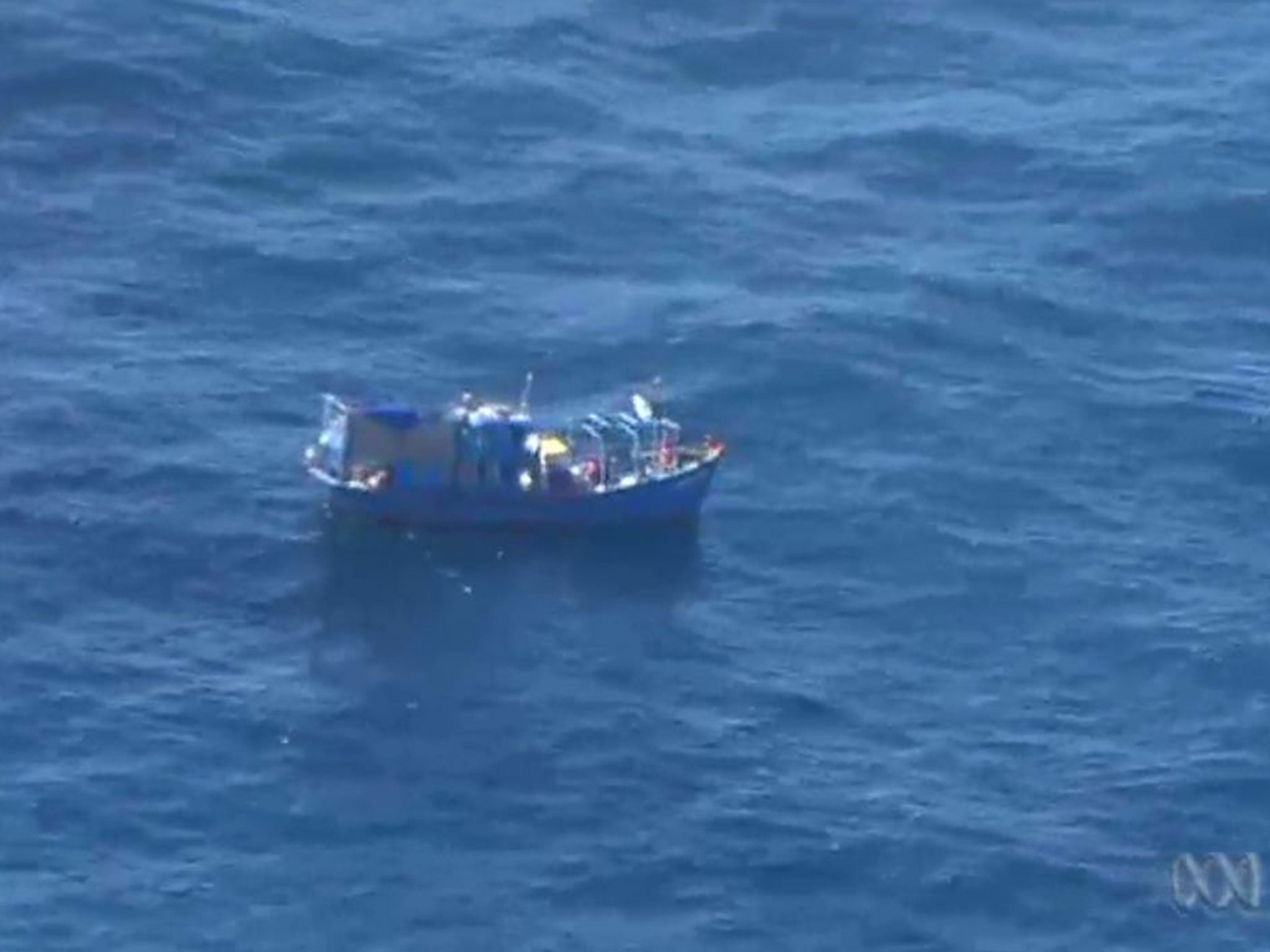Suspected asylum seeker boat spotted off the coast of Australia would be first vessel carrying refugees to enter country for over a year
Human Rights Watch say that more people have died in the centres than been resettled from them

A wooden boat, believed to be carrying asylum seekers, has been spotted off the coast of Australia today.
The Australian Broadcasting Corporation reported sightings of the boat this morning. The boat would be the first vessel to carry would-be refugees close to the shore for over a year.
Australia has a strict immigration and asylum policy which sees it turn boats back to Indonesia. It also sends asylum seekers to Papua New Guinea for long-term detention.
In a report by Human Rights Watch released last week, the group urged Australia to end its policy of sending asylum seekers to Papua New Guinea, calling the policy a "disaster". The organisation claims that “more people have died than have been resettled” in the camps.
Although Papua New Guinea gained independence from Australia in 1975, links between the two countries remain close with Australia being the biggest donor of aid to the small nation. In July 2013, a deal was struck between the two territories that any asylum seekers arriving at Christmas Island would be relocated to Papua New Guinea.
Many people seeking refuge in Australia come to the Australian territory of Christmas Island because it is much easier to access geographically for many asylum seekers. However, despite the fact that this meant they were arriving at Australian borders, Australia began sending them to Papua New Guinea instead, to be detained there.
Once on the small island, if they are deemed to be economic migrants, they are sent home. If they are deemed true asylum seekers, they are given leave to stay in Papua New Guinea. However, they are never allowed to enter Australia.
Most people refuse to apply for residency in Papua New Guinea and are instead held there in a former naval base now used as a camp, effectively in limbo.
Elaine Pearson, Australian Director of Human Rights Watch said: “After two years, Australia’s experiment in offshore detention has been a disaster.
“Even the few people provided refugee status have been denied freedom of movement and the right to work. All should be allowed to move on with their lives in dignity and security.”
The report described the refugees as living in “overcrowded conditions” in the detention centre and said that both the media and human rights organisations had not been given access to the facilities.
The report also noted that a man died after contracting septicaemia through a cut on his foot.
“Mental health problems linked to prolonged and indefinite detention”, including suicide and self-harm, are also reported to be prevalent.
Human Rights Watch say that gay asylum seekers can be exposed to particular mistreatment due to their sexuality.
In 2014, violence broke out in the camp when guards responded violently to protests by detainees. Locals were allowed to enter the camp with machetes and knives. One man was killed and 77 others were injured in the resulting riot. A subsequent Australian parliamentary inquiry about the tragedy said that the events had been “eminently forseeable”.
In January of this year 700 detainees went on hunger strike. Ten people sewed their lips shut, whilst others swallowed razor blades and hazardous substances.
The Australian Immigration Department declined to comment on the report, telling local press that the issues raised are “matters for the Papua New Guinea government”.
The Independent has contacted the Papua New Guinea administration for comment.
With additional reporting by Reuters
Subscribe to Independent Premium to bookmark this article
Want to bookmark your favourite articles and stories to read or reference later? Start your Independent Premium subscription today.

Join our commenting forum
Join thought-provoking conversations, follow other Independent readers and see their replies